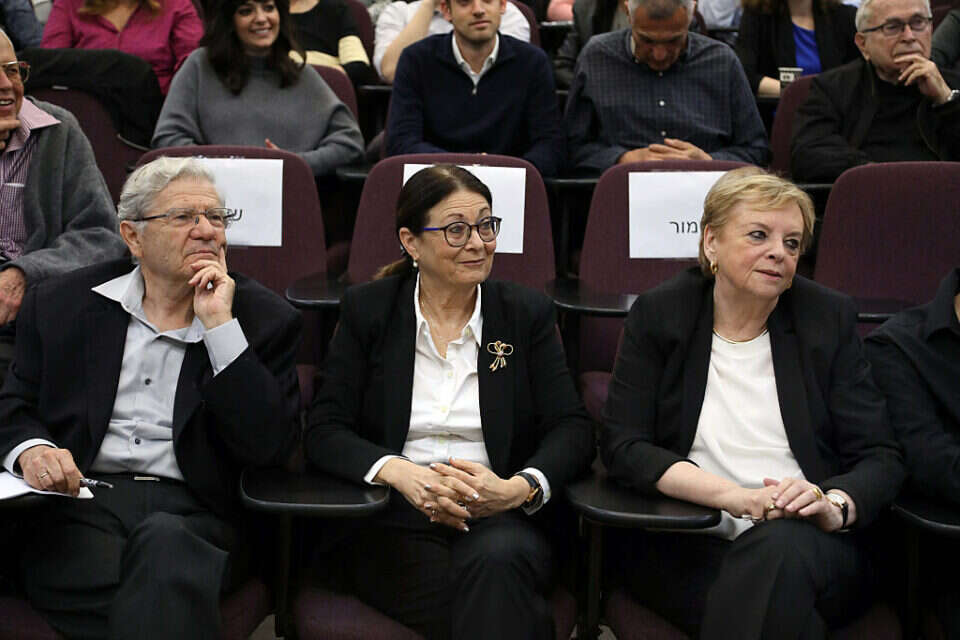Judicial activism harms public trust in the legal system: this is what the results of a new study recently conducted at the Hebrew University suggest.
The research, conducted by Prof. Yonatan Givati and PhD student Aaron Gerber, uses a unique database that was unknown to legal researchers until today.
These are data on public trust in the court and other institutions, both in Israel and in other countries, in the years 1991-2018.
In doing so, he succeeds in deciding the historic dispute between former Supreme Court President Aharon Barak and Judge Moshe Landoi.
Barak believed that judicial criticism of the laws of the Knesset and judicial involvement in political questions will not harm the public's trust in the court.
He claimed that trust will be maintained as long as the public is convinced of the professional motives of the judges and that they act impartially.
Unlike Barak, Landoy believed that the constitutional revolution would damage the public's trust in the House of Justice.
According to him, decision-making in connection with political and value disputes and disqualification of Knesset laws cannot be done in an objective and neutral manner.
The study seeks to empirically examine which of the theories is true using the International Social Survey Program (ISSP) which is the result of a cross-country collaboration focusing on questionnaires from 40 countries in 1991, 1998, 2008 and 2018. The respondents were asked to answer the question "What How much trust do you have in the courts and the judicial system?", and other questions dealing with the Knesset, business and industry, the rabbinate and religious institutions and schools and the education system.
It is important to note that the study reveals the earliest data on public trust in the court available to researchers in Israel (with 4,500 respondents) so that it is possible to examine how the constitutional revolution has affected it over the years.
These are the only data whose collection began before the basic laws were enacted in 1992 and before the announcement of the constitutional revolution in 1995.
The networks do not affect
The researchers claim that "following the constitutional revolution, the percentage of respondents with a lot of trust in the court decreased by about 30%" and state that "no court in the world and no institution in Israel has seen such a dramatic decrease in trust in them during this period".
The public against judicial activism?
Prime Minister-designate Netanyahu and Supreme Court President Hayut (archive), photo: Oren Ben Hakon
When examining the development of the level of trust over the years, the researchers find that compared to 1991, the percentage of Jews who have a lot of trust in the court decreased by approximately 23% in 1998, by approximately 25% in 2008, and by approximately 29% in 2018. "We find no evidence of a change in trust in the courts among the non-Jewish public," they claimed.
The study shows that the decline also applies among academics, and that "even on the left side of the fence the decline was dramatic" and that there is no statistically significant relationship between social networks and a decline in trust in the justice system.
Survey: Aharon Barak's constitutional revolution led to a loss of trust in the legal system (archive), photo: Oren Ben Hakon
"The fact that a significant part of the decrease in trust in the court occurred before the introduction of social networks to Israel, and the fact that no connection was found between the use of social networks and trust in the court, makes it difficult to accept the claim that the decrease in trust was caused by social networks," they claim.
The study excludes that the decrease in trust is part of the phenomenon of a decrease in trust in other state institutions.
The data show that the decline in trust in the High Court was 24% steeper than the decline in public trust in the Knesset, the education system and religious institutions.
The conclusion is that the decline in trust in the Israeli court is at a serious level in the world.
When the researchers compared the data to the other 40 countries, they discovered that since the constitutional revolution, the decline in trust in Israel is about 10% steeper than in all other countries, so it can be determined that it is the cause of this.
The researchers state that further expansion of judicial discretion will increase public mistrust, and the result could endanger the independence of the judiciary.
They estimate that the political attempts to restrain the court and limit its powers will increase.
were we wrong
We will fix it!
If you found an error in the article, we would appreciate it if you shared it with us

